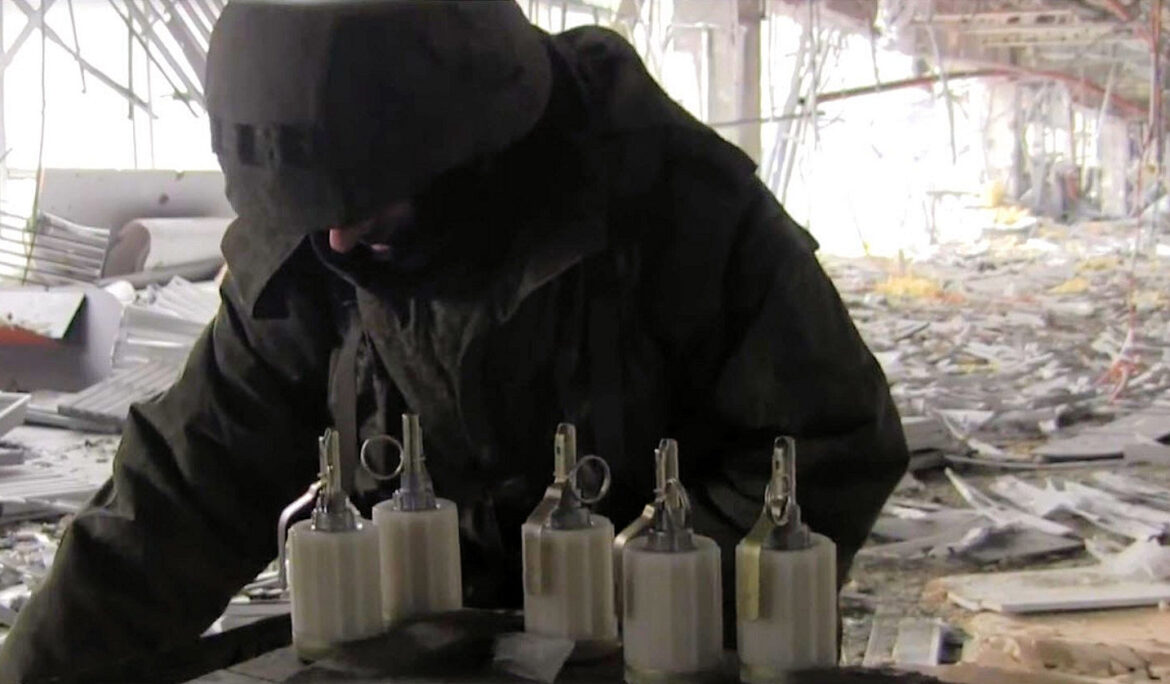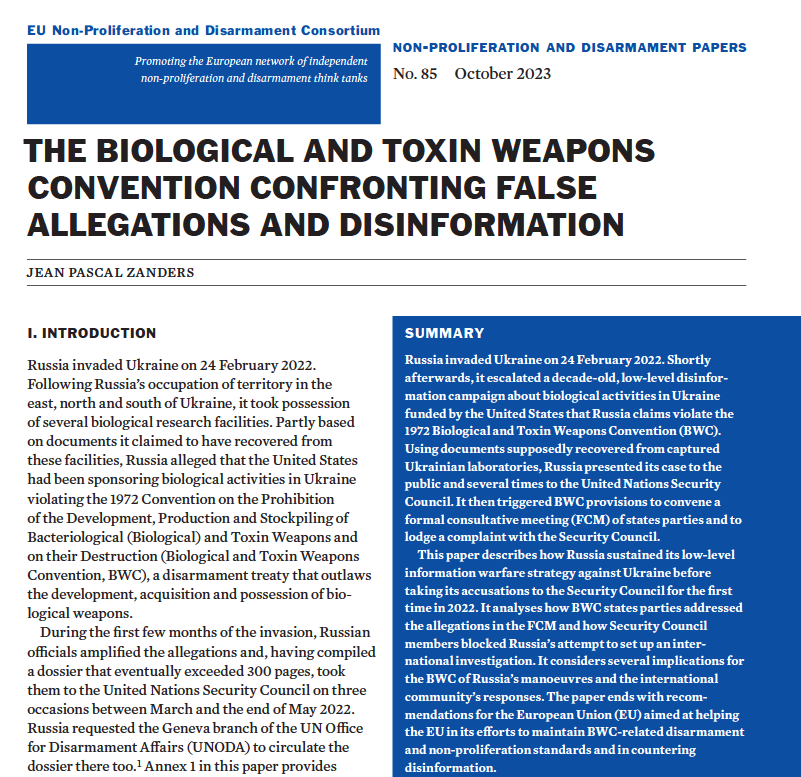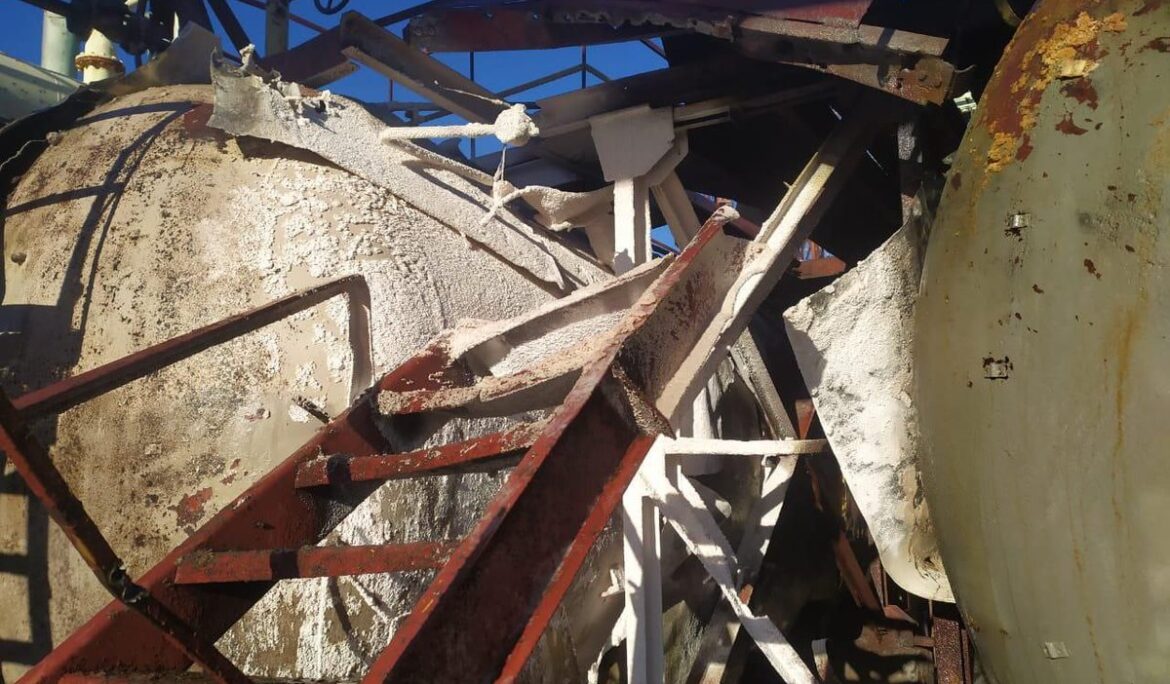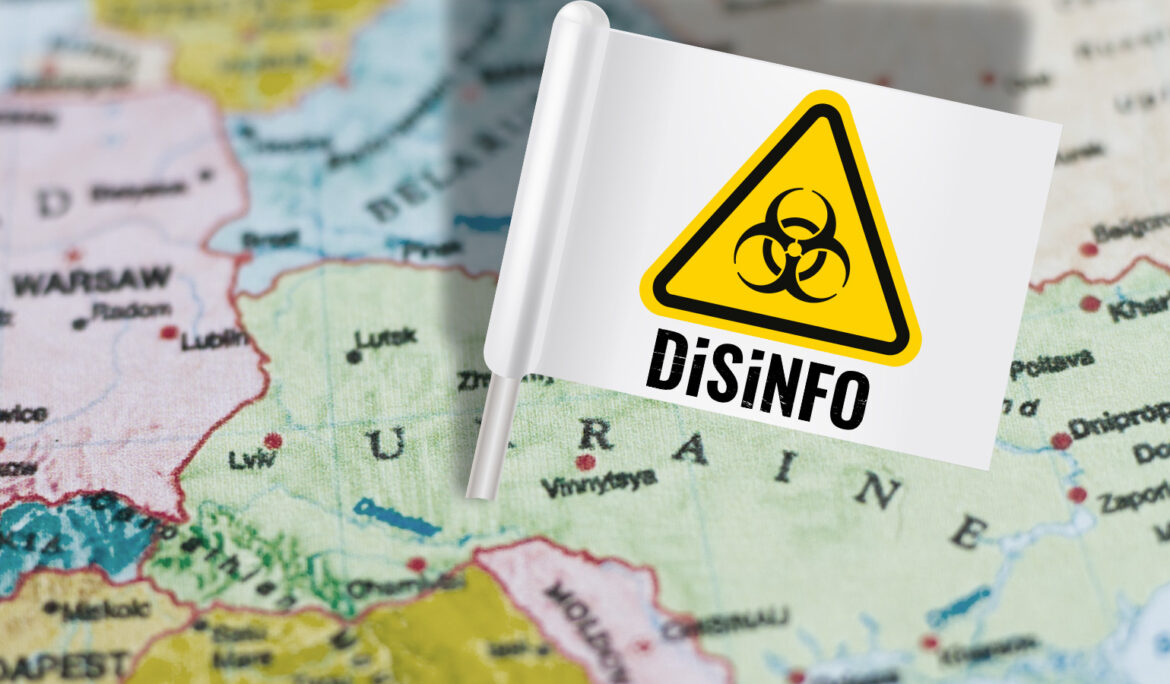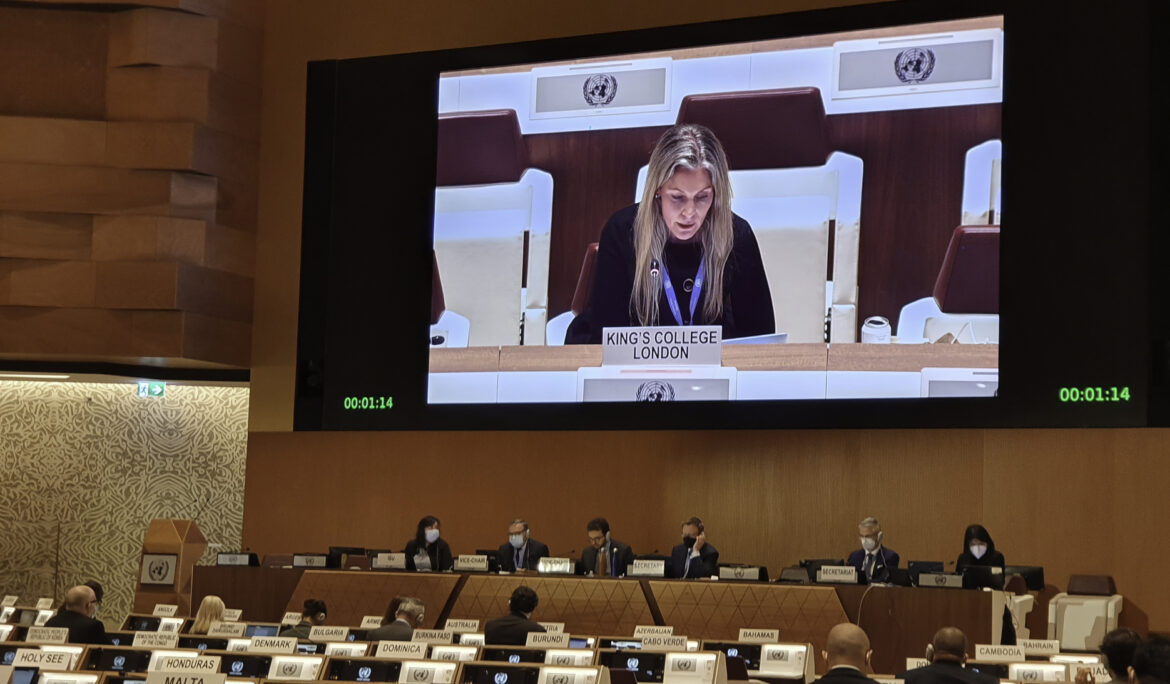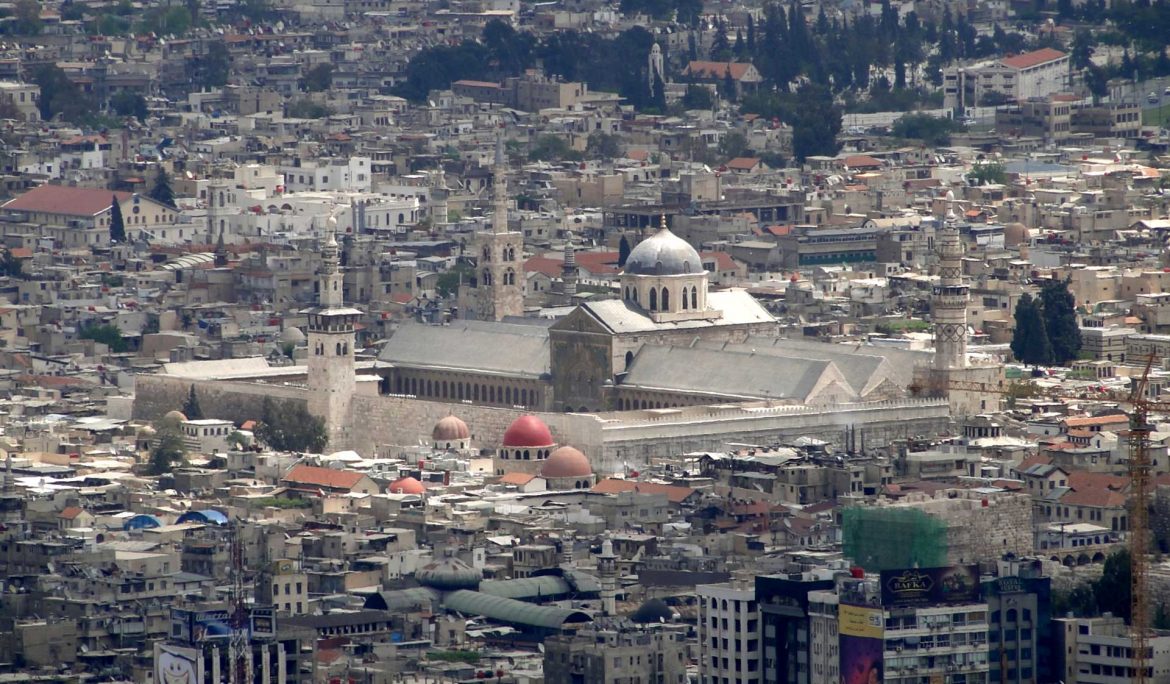In the long shadow of Halabja
A report from Pugwash Iraq’s first international conference Thirty-seven years ago, on 16 March 1988, Iraq’s military forces hit the Kurdish town of Halabja with artillery rockets and napalm bombs, followed by sustained bombing runs releasing chemical weapons. Between three and five thousand people perished, and many thousands more suffered life-altering injuries. Almost all civilians, an estimated three-quarters of them women and children. Genetic defects resulting from their exposure to mustard and nerve agents meant that even today, their offspring too have inherited these chromosomal anomalies, making them transgenerational victims of chemical warfare. To remember the massacre, Pugwash Iraq organised …
Chloropicrin and its alleged use in the Ukrainian war (part 3)
The first instalment of this four-part blog series reviewed the allegations of Russian chemical weapon (CW) use in the Ukrainian war from its start in 2014 until the present. At the meeting of the Executive Council of the Organisation for the Prohibition of Chemical Weapons (OPCW) in March 2024, the Ukrainian delegate reported 1,060 incidents since the Russian invasion in February 2022. More recently, Ukraine claimed in a note verbale to the OPCW dated 13 June that it had recorded a total of 2,968 cases of Russian use of riot control agents (RCAs) between 15 February 2023 and 25 April …
Chloropicrin and its alleged use in the Ukrainian war (Part 1)
On 1 May, the United States formally accused Russia of using ‘the chemical weapon chloropicrin against Ukrainian forces in violation of the Chemical Weapons Convention (CWC)’. It added: ‘We make this determination in addition to our assessment that Russia has used riot control agents as a method of warfare in Ukraine, also in violation of the CWC. The use of such chemicals is not an isolated incident and is probably driven by Russian forces’ desire to dislodge Ukrainian forces from fortified positions and achieve tactical gains on the battlefield.’ Allegations of chemical weapons (CW) use first appeared after the start …
Chloropicrin and its alleged use in the Ukrainian war (part 2)
The first of four parts in this blog series reviewed the allegations of Russian chemical weapon (CW) use in the Ukrainian war from its start in 2014 until today. The Ukrainian delegate reported 1,060 incidents since the Russian invasion in February 2022 at the meeting of the Executive Council of the Organisation for the Prohibition of Chemical Weapons (OPCW) in March 2024. On 23 May, the Wall Street Journal quoted Ukrainian sources that the number of CW incidents was quickly approaching the 2,000 mark: As of May 3, the Support Forces have confirmed 1,891 such attacks since they began tracking …
The BTWC Confronting False Allegations And Disinformation
Introduction Russia invaded Ukraine on 24 February 2022. Following Russia’s occupation of territory in the east, north and south of Ukraine, it took possession of several biological research facilities. Partly based on documents it claimed to have recovered from these facilities, Russia alleged that the United States had been sponsoring biological activities in Ukraine violating the 1972 Convention on the Prohibition of the Development, Production and Stockpiling of Bacteriological (Biological) and Toxin Weapons and on their Destruction (Biological and Toxin Weapons Convention, BWC), a disarmament treaty that outlaws the development, acquisition and possession of biological weapons. During the first few …
Heard It on the X: The active US biological weapons programme in Ukraine
Do you remember the 1975 song ‘Heard It on the X’ by the Texan blues-rock band ZZ Top? In the 1960s and 70s, the ‘X’ referred to the first letter of the codes for Mexican private radio stations. Contrary to their American counterparts, they broadcast with unlimited wattage and thus covered most of the USA. Anybody could buy any amount of radio time. So, many US preachers and other quacks exploited the opportunity to peddle their ‘truths’, Jesus-autographed prayer cloths, snake oils, or whatever. Almost half a century later, Elon Musk bought Twitter, rebranded it ‘X’, and began pushing his …
Prelude to chemical weapons use?
Late yesterday evening, adviser to Ukraine’s Minister of Internal Affairs Anton Garashchenko tweeted that Russia was using chemical weapons (CW) against the defenders of the encircled Black Sea town of Mariupol. Another statement, reportedly from the Azov regiment – notorious for its neo-Nazi ideology – defending the city, mentioned respiratory failure and vestibulo-atactic syndrome. There are references to dissemination of a toxic substance by a drone, but also that the incident has had no disastrous health consequences. Clearly, whatever the incident may have been, it is not (yet) a situation whereby Russia has unleashed CW, as a British tabloid was …
“Biological weapons are banned; biological research is not”
Amid the barrage of lies accompanying Russia’s war against Ukraine, the Kremlin’s disinformation narrative that Ukraine is carrying out research to develop biological weapons stands out as particularly insidious. Not only does it attempt to justify Russia’s brutal invasion, but also discredit legitimate biological and epidemiological research worldwide, at the risk to global public health. In an interview with EUvsDisinfo, Dr. Jean-Pascal Zanders, founder of The Trench and an independent expert on disarmament questions covering chemical and biological weapons, talks about the crucial differences between legitimate biological research and the development of biological weapons and why Russia is engaging in …
Statement to Biological Weapons Convention Preparatory Committee, endorsed by The Trench
Statement to Biological Weapons Convention Preparatory Committee, Geneva 4 April 2022 Presented by Dr Filippa Lentzos, King’s College London Mr Chair, Distinguished Representatives: We condemn Russia’s unprovoked military invasion and its continuing war against Ukraine. We stand with the government and people of Ukraine, and we urge Russia to stop its brutal attacks. We echo the call by the World Health Organization, UNICEF and UNFPA to immediately cease attacks on hospitals, ambulances and medical staff.[1] It is an unacceptable strategy and tactic.[2] Mr Chair, Russia accuses Ukraine of working on biological weapons supported by the United States and other …
Apparently major chemical weapons attack near Damascus reported
As I am writing, disturbing news reports are coming in of a major chemical attack on the eastern eastern outskirts of Damascus (Ghouta district). According to images and film footage posted to the Internet by opponents to the al-Assad regime, many casualties, including fatalities can be seen. Supplementary visual testimony strongly indicates poisoning. [Images are graphic and should be viewed with caution!] In past blog postings and commentaries I have been sceptical of CW claims, because the narrative accompanying images and film footage did not correspond with what could be seen. More importantly, a number of things one would expect …



